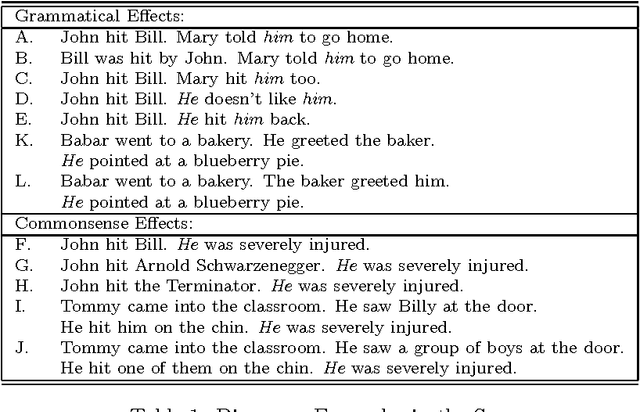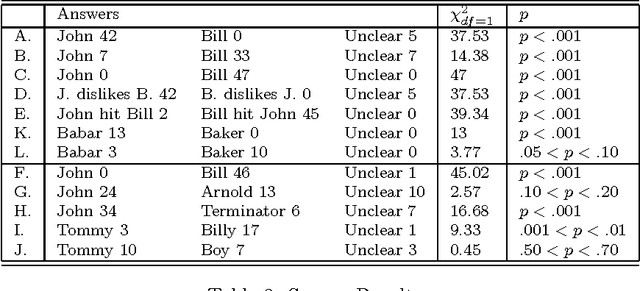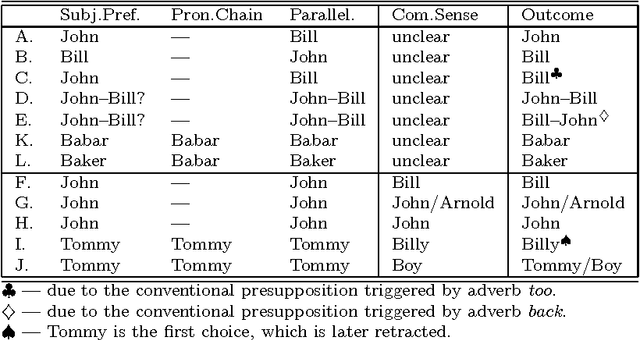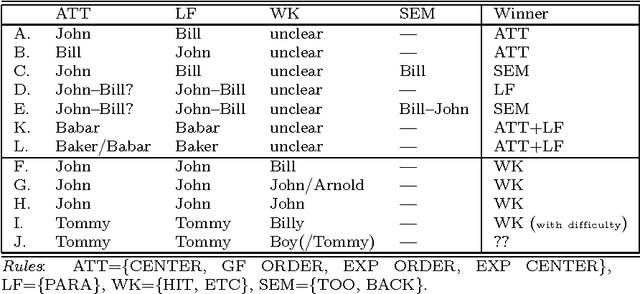Indefeasible Semantics and Defeasible Pragmatics
Paper and Code
Jun 14, 1995



An account of utterance interpretation in discourse needs to face the issue of how the discourse context controls the space of interacting preferences. Assuming a discourse processing architecture that distinguishes the grammar and pragmatics subsystems in terms of monotonic and nonmonotonic inferences, I will discuss how independently motivated default preferences interact in the interpretation of intersentential pronominal anaphora. In the framework of a general discourse processing model that integrates both the grammar and pragmatics subsystems, I will propose a fine structure of the preferential interpretation in pragmatics in terms of defeasible rule interactions. The pronoun interpretation preferences that serve as the empirical ground draw from the survey data specifically obtained for the present purpose.
 Add to Chrome
Add to Chrome Add to Firefox
Add to Firefox Add to Edge
Add to Edge